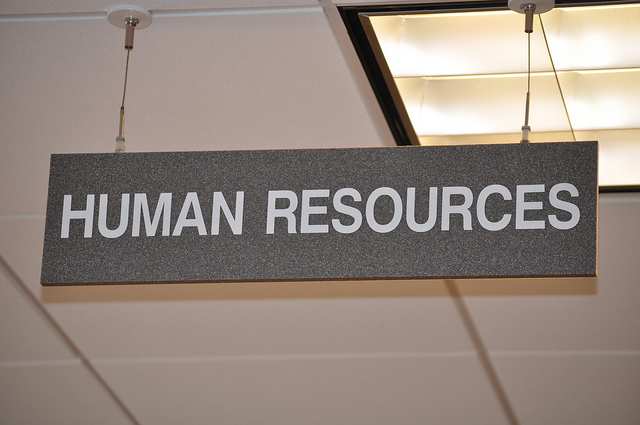
How Human Resource Managers can Perform Employee Evaluation More Effectively
How Human Resource Managers can Perform Employee Evaluation More Effectively https://csuiteold.c-suitenetwork.com/wp-content/uploads/2015/02/4320245924_b8f945a7f8_z.jpg 640 427 C-Suite Network https://csuiteold.c-suitenetwork.com/wp-content/uploads/2015/02/4320245924_b8f945a7f8_z.jpgWorking in Human Resource Management requires a peculiar discipline. We learn to identify the entire workforce that makes up our organization as “human capital,” yet we must always see each individual as just that — an individual. While the policies and systems we work within remain fairly constant, the people we manage change day by day (and, it often seems, minute by minute).
Each person we work with has good days and bad, but their strengths and weaknesses, talents and ambitions, seldom vary with circumstance or mood. In training and developing the expertise of existing personnel, it’s those inherent qualities we have to analyze and summarize when conducting employee evaluations.
Employee evaluations, such as 360 degree feedback, are essentially talent management. As such, the subconscious mindset of the staffer is quite as relevant as stated attitudes and ambitions. Self-sabotage is surprisingly common in unhappy employees, from the humblest factory-floor operative to senior echelon executives. Identifying the potential for self-sabotage, then dealing with any and all root causes that contribute to overall (but often unnoticed) despondency, is a science all to itself.
Stressful days have a habit of escalating, but they don’t represent an attitudinal pattern. If the alarm fails, the employee you’re evaluating may have rushed out of the house with a coffee that should’ve been drunk in the kitchen, cutting short anticipated family time. That coffee could have been spilled in the car and may have ruined important documents. Suddenly, those 10 minutes of over-sleeping turn into two hours remaking the file.
Days like that tend to avalanche, and nobody’s mood survives the experience intact. But such experiences needn’t contribute to an overall climate of disheartened apathy or active aggression toward the workplace. Those causes run deeper.
Industrial and Organizational Psychology
The primary way for Human Resource Managers to perform employee evaluations more effectively, and to make themselves more valuable, is to gain a working knowledge of industrial and organizational psychology (I–O psychology).
I–O psychology is the objective scientific examination of human behavior, specific to conduct and attitude in the workplace.
This field of study also applies the theories and principles of human psychology to the organizations which we — both HR professionals and the labor pool — work within.
Because IO relies largely on the tenets of psychology’s Scientist-Practitioner Model, it emphasizes twin disciplines:
- Experimental and observational analysis influence real-world interactions, while
- Those real-world interactions simultaneously influence future fact-finding investigations
In that way, psychological field work and empirical methodology work in tandem, improving and distilling the HR professional’s ability to see what’s behind the facade of each employee he or she evaluates. And it’s down there — way beneath the surface — that root causes can be identified.
Self Sabotage; Risks and Ricochets
Self-sabotaging behavior involves the deliberate (albeit usually unconscious) creation of problems; issues that can, in the end, interfere with performance and goal-realization.
Subtlety is usually the key to identifying potentially self-sabotaging conduct or attitude. If a line worker physically assaults a supervisor, sure, that’s self-sabotage — there’s every likelihood dismissal will be followed by a criminal prosecution. Such events are, happily, the exception rather than the rule. Self-sabotage more often evidences in behavior such as procrastination, or rapid and unhealthy weight gains caused by comfort eating.
These are easy presentations to underestimate, but they can be pointers toward problems which may well, eventually, undermine the employee’s effectiveness. That, in turn, can negatively impact overall corporate performance.
Individuals are often unaware of their own self-sabotage, and effects may not present immediately. Consequences, conversely, can begin to accrue as soon as the self-sabotage begins, so prompt attention to any perceived “symptom” is imperative.
The Take Away
Great Human Resources Managers carry out great employee evaluations, and by doing so improve:
- The performance and productivity of the company
- The satisfaction and commitment of the employee
A workforce that isn’t well managed, in contrast, won’t be as dynamic, and can in extreme cases even suffer from physical symptoms of ill health caused by ongoing unhappiness.
One final pointer toward how Human Resource Managers can perform employee evaluation more effectively concerns change.
To survive in a competitive marketplace, all corporate entities must adapt and evolve. Organizational development by definition imposes change upon employees, and alterations to circumstance and/or operational policies can cause discomfort. Unease, in turn, often negatively impacts “the subconscious mindset of the staffer” discussed above.
An effective Human Resources Manager remains aware of all alterations occurring within the business he or she is responsible for, and of the potential impacts they could have on the workforce. It’s usually advisable to instate a rolling series of employee evaluations, ongoing through periods of change, intended to determine how umbrella developments are impacting individuals. In this way, potential problems can be resolved before they even become problems per se, and that’s the most effective employee evaluation of all.
 This article was submitted and written by the team at Grapevine Evaluations. Grapevine Evaluations is a leading provider of online survey software specializing in 360 Employee Evaluations.
This article was submitted and written by the team at Grapevine Evaluations. Grapevine Evaluations is a leading provider of online survey software specializing in 360 Employee Evaluations.



